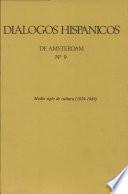
Busca tu Libro:

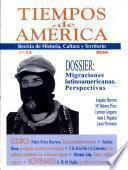
Tiempos de America
Autor: Centro de Investigaciones de América Latina
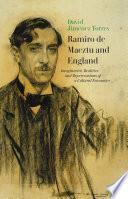
Ramiro De Maeztu and England
Autor: David Jiménez Torres
Número de Páginas: 179A major contribution to our understanding of intellectual exchanges between Britain and Spain in the early twentieth century.

Historica, Biblica, Ascetica Et Hagiographica
Autor: Frances Margaret Young , Mark J. Edwards , Paul M. Parvis
Número de Páginas: 472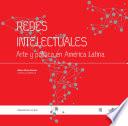
Redes intelectuales
Autor: Bernal, Maria Clara
Número de Páginas: 600El objetivo principal del libro es estudiar las discusiones que se dieron en las ciudades latinoamericanas alrededor de la relación entre arte y política en el periodo comprendido entre 1920 y 1980. El análisis de estas décadas, dio luces sobre las redes que surgieron del intercambio entre artistas e intelectuales en circunstancias históricas únicas y por medio de plataformas diversas. Los principales ejes temáticos de Redes intelectuales son los nodos y redes continentales que construyeron las revistas culturales en la primera mitad del siglo XX, las redes poético-ideológicas que polarizaron a la intelectualidad y a los artistas en América durante la llamada Guerra Fría y, finalmente, las redes que constituyeron a nivel macro y micropolítico durante los años setenta los artistas, críticos y curadores más ideologizados de ese momento. La pluralidad de miradas que reúne este libro es el fruto la convicción de que comprender la complejidad del estudio de los procesos artísticos del continente implica hoy un compromiso de trabajo en red.
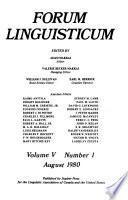
Forum Linguisticum
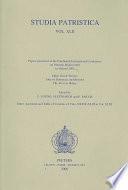
Other Greek Writers, John of Damascus and Beyond, the West to Hilary
Autor: Frances Margaret Young , Mark J. Edwards , Paul M. Parvis
Número de Páginas: 415
Studia Patristica
Autor: F. Young , Mark J. Edwards , Paul M. Parvis
Número de Páginas: 415Papers presented at the Fourteenth International Conference on Patristic Studies held in Oxford 2003 (see also Studia Patristica 39, 40, 41 and 43). The successive sets of Studia Patristica contain papers delivered at the International Conferences on Patristic Studies, which meet for a week once every four years in Oxford; they are held under the aegis of the Theology Faculty of the University. Members of these conferences come from all over the world and most offer papers. These range over the whole field, both East and West, from the second century to a section on the Nachleben of the Fathers. The majority are short papers dealing with some small and manageable point; they raise and sometimes resolve questions about the authenticity of documents, dates of events, and such like, and some unveil new texts. The smaller number of longer papers put such matters into context and indicate wider trends. The whole reflects the state of Patristic scholarship and demonstrates the vigour and popularity of the subject.
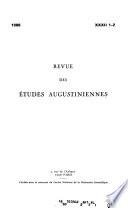
Revue des études augustiniennes
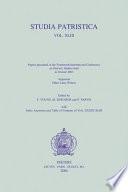
Papers Presented at the Fourteenth International Conference on Patristic Studies Held in Oxford 2003
Autor: Frances Margaret Young , Mark J. Edwards , Paul M. Parvis
Número de Páginas: 569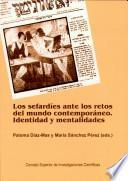
Los sefardíes ante los retos del mundo contemporáneo
Autor: Paloma Díaz Más
Número de Páginas: 370La situación de los sefardíes del antiguo imperio otomano, las transformaciones que sufrieron su cultura y sus formas de vida tradicionales como consecuencia de los cambios políticos, económicos y socioculturales en Turquía y los Balcanes entre la segunda mitad del siglo XIX y la Segunda Guerra Mundial, poseen características específicas, pero también elementos en común con los sucedidos a otras minorías europeas. En este libro, se analizan desde una perspectiva multidisciplinar, varios aspectos de la cultura de los judíos sefardíes del Mediterráneo Oriental en la transición del siglo XIX al XX.
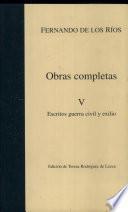
Obras completas: Escritos guerra civil y exilio
Autor: Fernando de los Ríos
Número de Páginas: 632Obras completas / Fernando de los Ríos.- v.5.
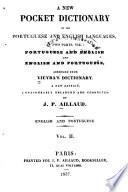
Novo diccionario das Portugueza e Ingleza, en duas partes
Autor: Antonio Vieyra
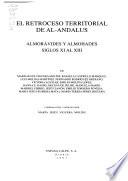
Los reinos de taifas
Número de Páginas: 791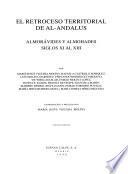
Historia de España: Los Reinos de Taifas
Autor: Ramón Menéndez Pidal
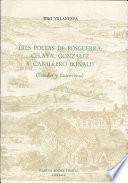
Tres poetas de posguerra
Autor: Tino Villanueva
Número de Páginas: 381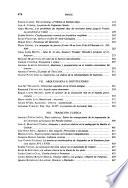
Estudios clásicos
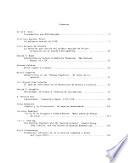
Dieciocho : Hispanic Enlightenment aesthetics and literary theory
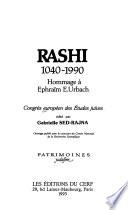
Rashi, 1040-1990
Autor: European Association for Jewish Studies. Congress , Gabrielle Sed-Rajna , Efraim Elimelech Urbach
Número de Páginas: 833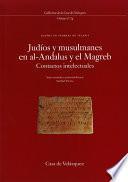
Judíos y musulmanes en al-Andalus y el Magreb
Número de Páginas: 254Los estudios aquí reunidos versan sobre el contacto intelectual entre musulmanes y judíos que tuvo lugar en el Occidente islámico medieval. El eje crucial de dicho contacto fue la lengua árabe, pues la arabización de los judíos posibilitó la comunicación diaria y literaria entre dos comunidades. ¿En qué consistió esa comunicación en el campo intelectual? ¿Hasta qué punto las partes implicadas se vieron afectadas por igual? ¿Qué disciplinas se prestaron mejor a tal encuentro cultural? ¿Cuáles fueron los márgenes entre los que se canalizó este para asegurar el mantenimiento, dentro de su inevitable devenir, de las identidades culturales propias? Las respuestas a estas y otras preguntas conciernen a la función identitaria de la lengua, al desarrollo de la gramática hebrea y de la exégesis de los textos sagrados hebreos, a la poesía ascética y las expectativas mesiánicas, a la obra de autores tan destacados como al-Harizi, Maimónides, Ibn Jaldun e Ibn Adret. Si los especialistas encontrarán materia de interés en el libro, la aportación de la obra no se limita a esos campos, pues atañe al lector no especialista que sienta curiosidad por el apasionante...

Targumic and Cognate Studies
Autor: Kevin J. Cathcart , Michael Maher , Martin McNamara
Número de Páginas: 250This volume draws together essays by fourteen international scholars in the field of Aramaic and Syriac studies. It is published to pay fitting honour to Professor Martin McNamara, who has contributed so much to Targumic studies for almost forty years. The contributions in this collection reflect his interests in the study of the Targums, the development of the Aramaic language and early Jewish and Christian literature. Many of the contributors to this volume have worked with Professor McNamara in preparing volumes for the Aramaic Bible series, to which he has devoted so much time and energy.
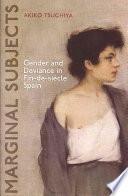
Marginal Subjects
Autor: Akiko Tsuchiya
Número de Páginas: 277Late nineteenth-century Spanish fiction is populated by adulteresses, prostitutes, seduced women, and emasculated men - indicating an almost obsessive interest in gender deviance. In Marginal Subjects, Akiko Tsuchiya shows how the figure of the deviant woman--and her counterpart, the feminized man - revealed the ambivalence of literary writers towards new methods of social control in Restoration Spain. Focusing on works by major realist authors such as Benito Pérez Galdós, Emilia Pardo Bazán, and Leopoldo Alas (Clarín), as well as popular novelists like Eduardo López Bago, Marginal Subjects argues that these archetypes were used to channel collective anxieties about sexuality, class, race, and nation. Tsuchiya also draws on medical and anthropological texts and illustrated periodicals to locate literary works within larger cultural debates. Marginal Subjects is a riveting exploration of why realist and naturalist narratives were so invested in representing gender deviance in fin-de-siècle Spain.
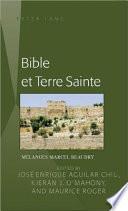
Bible et Terre Sainte
Autor: José Enrique Aguilar Chiu , Kieran J. O'Mahony , Maurice Roger
Número de Páginas: 553Le livre contient une série de 45 articles brefs portant sur l'exégèse biblique de l'Ancien et du Nouveau Testament, l'archéologie, l'épigraphie, la géographie et l'histoire de l'ancien Israël. Cette collection d'articles traite de sujets variés : vues générales sur les discussions présentes autour de la Bible et de la Terre Sainte, contribution à la compréhension de passages précis de l'Ancien et du Nouveau Testament, études sur des inscriptions anciennes pour éclairer notre compréhension du texte biblique, recherches portant sur le Judaïsme et sur le Christianisme anciens. Ce livre entend faire découvrir la diversité des domaines qui sont liés à la compréhension de la Bible et à faire le point sur la recherche à partir de différents sujets liés à ces domaines d'étude.
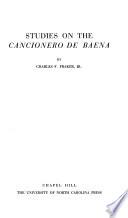
Studies in the Romance Languages and Literatures
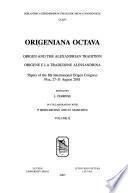
Origeniana Octava
Autor: Lorenzo Perrone
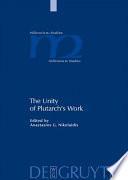
The Unity of Plutarch's Work
Autor: Αναστάσιος Γ Νικολαϊδης
Número de Páginas: 851This volume of collected essays explores the premise that Plutarch's work, notwithstanding its amazing thematic multifariousness, constantly pivots on certain ideological pillars which secure its unity and coherence. So, unlike other similar books which, more or less, concentrate on either the Lives or the Moralia or on some particular aspect(s) of Plutarch's oeuvre, the articles of the present volume observe Plutarch at work in both Lives and Moralia, thus bringing forward and illustrating the inner unity of his varied literary production. The subject-matter of the volume is uncommonly wide-ranging and the studies collected here inquire into many important issues of Plutarchean scholarship: the conditions under which Plutarch's writings were separated into two distinct corpora, his methods of work and the various authorial techniques employed, the interplay between Lives and Moralia, Plutarch and politics, Plutarch and philosophy, literary aspects of Plutarch's oeuvre, Plutarch on women, Plutarch in his epistemological and socio-historical context. In sum, this book brings Plutarchean scholarship to date by revisiting and discussing older and recent problematization concerning...
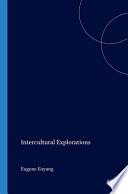
Intercultural Explorations
Autor: International Comparative Literature Association. Congress , International American Studies Association. World Congress
Número de Páginas: 292Volume 8 of the proceedings of the XVth Congress of the International Comparative Literature Association "Literature as Cultural Memory", Leiden 16-22 August 1997.
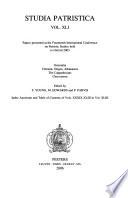
Studia Patristica
Autor: Frances Margaret Young , Mark J. Edwards , Paul M. Parvis
Número de Páginas: 475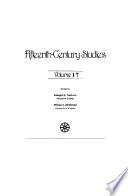
Fifteenth Century Studies
Número de Páginas: 252Includes a selection of papers presented at the Fifteenth-Century Symposia, 1977-
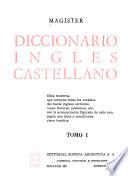
Magister: Diccionario ingles castellano
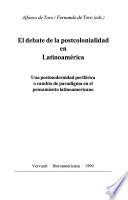
El debate de la postcolonialidad en Latinoamérica
Autor: Alfonso de Toro , Fernando de Toro
Número de Páginas: 408Texto en español, inglés y francés.
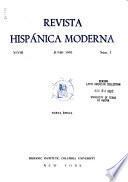
Revista hispánica moderna
Includes songs with piano accompaniment.
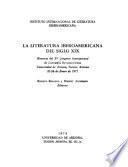
La literatura iberoamericana del siglo XIX
Autor: Renato Rosaldo , Robert Roland Anderson , Universidad de Arizona
Número de Páginas: 274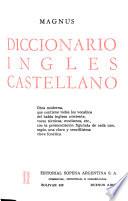
Magnus, diccionario inglés-castellano
Número de Páginas: 1037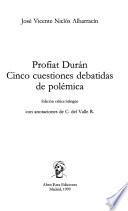
תשובות באנשי און
Autor: José-Vicente Niclós , Carlos del Valle Rodríguez
Número de Páginas: 110![Apocalipsis del Pseudo Atanasio [ApPsAt(ar)II]](https://cdn1.descargarlibros.cl/images/libro/apocalipsis-del-pseudo-atanasio-appsat-ar-ii-id-kn2bDQAAQBAJ.jpg)
Apocalipsis del Pseudo Atanasio [ApPsAt(ar)II]
Autor: Juan-Pedro Monferrer Sala
El Apocalipsis del Pseudo Atanasio, una obra compuesta originalment en copto –del que deriva la presente recensión en lengua árabe–, se inserta en el seno de la tradición apocalíptica oriental, con innovaciones propias del medio copto tanto a nivel histórico como literario. En la línea de los temas transmitidos por esta tradición y con una tendencia a la exposición sumaria, el autor articula de un modo ejemplar los mecanismos literarios y la confección narratológica del texto. La obra desempeña, entre otras funciones, la de propaganda política contra la expansión árabe-islámica en Oriente Medio, después de que las comunidades cristianas ocupadas realizasen un interesante proceso de reflexión acerca de las causas teológicas, políticas y sociales que supuso la invasión árabe del siglo VII.
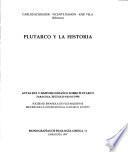
Plutarco y la historia
Autor: Carlos Schrader , José Vela
Número de Páginas: 506Ver Opciones